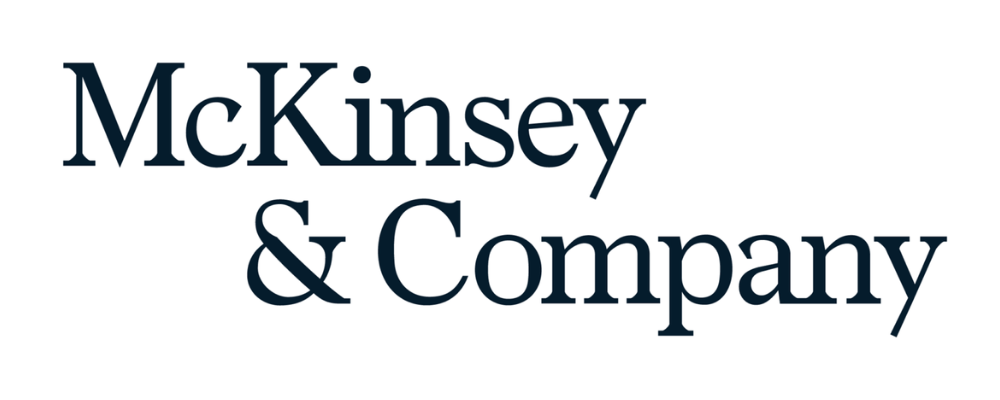
Cohere is carving a name for itself in the exploding AI market by focusing squarely on business clients and collaborating with major companies such as Google, Amazon, Oracle, and Microsoft, among others. Founded in 2019 by college friends Aidan Gomez, Nick Frosst, and Ivan Zhang, the company maintains offices in Toronto, San Francisco, New York, and London.
Gomez sat down with McKinsey senior partner Ben Ellencweig, who leads alliances, acquisitions, and partnerships globally for QuantumBlack, AI by McKinsey, to discuss Cohere’s founding, its mission, and the overarching importance of security and data privacy in the AI age.
The journey to AI and cofounding of Cohere
Ben Ellencweig: Aidan, can you tell us what brought you into AI and led you to cofound Cohere?
Aidan Gomez: The thing that really got me into AI was a fascination with intelligence in general. It kind of felt like the last mystery in the world. We’ve figured out quantum mechanics, and we understand our physical world so well. But intelligence and consciousness remained a mystery. And so for me, from an academic perspective as a researcher, it was the most interesting problem you can work on.
When I started the company five years ago with Nick and Ivan, we really built Cohere to push this technology out further into the world. We were all researchers and had been face-to-face with AI for years. And it was magical. It was like computers woke up and started speaking back to us. But the world wasn’t talking about it, and it wasn’t being used or deployed.
So there was this gap between the potential of what this technology can do and what it actually was doing. And that was really the inception of Cohere, to create a platform for enterprises to adopt, push out into the world, and put into more people’s hands.
A focus on privacy, customization, and secure deployments
Ben Ellencweig: As one of the first major AI companies to focus on the enterprise, how is Cohere’s technology designed to serve businesses?
Aidan Gomez: We architect our platform to focus on the issues that enterprises face when adopting AI technology. Everyone’s excited about generative AI [gen AI], but there are real hurdles to an enterprise adopting this technology.
The first is data privacy. These large language models [LLMs] can learn from your data. And if your employees are putting sensitive documents into external consumer services, they’re exposing them to the world because the model will be trained on that data. And so for Cohere, we deploy completely privately within a VPC [virtual private cloud] on premises. Only you can see your data.
The second is customization. A huge priority for us is the ability to tailor a model and the system around it to a specific enterprise’s architecture, systems, and data platforms—and doing all of that integration to make it fit together seamlessly.
Finally, our platform is not locked into one cloud. If you’re a CTO or a CIO and you’re buying technology for your company, you really don’t want to get stuck in one proprietary environment. You want the ability to flip between clouds, to deploy across multiple clouds, or even be on premises.
Ben Ellencweig: What are some examples of successful implementations of Cohere’s tech at scale within enterprises?
Aidan Gomez: A good example of our tech in production at scale would be Oracle’s Fusion applications. Oracle Fusion apps power the HR software of the enterprise world, as well as that for customer service and sales. And we’re powering tens of features within that application suite. That came out earlier this year, has scaled across many enterprises, and is already driving productivity lifts and efficiency boosts for Oracle’s customers.
How to succeed at scale
Ben Ellencweig: What were some of the critical factors that contributed to a successful at-scale implementation?
Aidan Gomez: I think what has helped us succeed in the enterprise world is the fact that we’re only focused on enterprise. We’re not trying to build a consumer service at the same time as we’re trying to build this enterprise platform. We only do one thing. And that’s enterprise.
And so we’ve focused on the use cases and the features that the enterprise market needs. That includes things like multilinguality. Enterprises have customers, employees, and partners who speak different languages. So you need to prioritize access to the global market and speaking the native tongues of people worldwide.
The other major piece are features like RAG, which has become a crucial component of enterprises gaining trust in the technology. RAG stands for “retrieval-augmented generation,” and it lets you ground the chatbot in your private data in a trustworthy way.
So hallucinations, or the tendency of these models to make things up, are dramatically reduced because the model is forced to explain its answer by citing information. That gives you auditability, so you can fact-check the model. And it builds trust with users.
Corporate barriers to AI integration
Ben Ellencweig: What are some key challenges companies face when integrating AI into their existing infrastructure?
Aidan Gomez: One of the barriers enterprises face when adopting this technology is around training. People need to become familiar with the technology for it to be productive. So teaching people where the technology is limited or not ready, versus where it’s perfect to deploy, is something that we spend a lot of time focusing on.
The second is privacy. There are real and genuine concerns around data leakage, exposing your data, and employees using consumer services that don’t protect data. So making sure that you’re providing employees with training and that you’re building with a partner that does completely private deployment is crucial.
The importance of good advice, partnering, and the next frontier
Ben Ellencweig: What’s some of the best advice you received while building the company?
Aidan Gomez: Stay focused on the customer. Always listen to the customer. Understand their problems and their hesitancies. It’s easy for me as a researcher to just be curious about the technology and work on the technology for technology’s sake. But a huge learning has been focusing on identifying and alleviating the blockers for easier adoption. So that’s what we spend a lot of our time doing.
Ben Ellencweig: What’s the next AI frontier that excites you the most?
Aidan Gomez: I think the next big thing in AI is going to be agents, or models that can integrate into the systems of an enterprise. At the moment, you can build a RAG system that integrates with the knowledge of your organization.
But that’s only one step. The next step is going to be integrating with the tools and the technology of your organization so you can automate work. At the moment, the model can just respond to your commands. And if you have a question, it can give you an answer. But in the future, the model’s going to be able to do much more and actually carry out tasks on your behalf.
Cohere is now part of McKinsey’s enterprise gen AI ecosystem, which comprises the world’s most cutting-edge innovation leaders across technology and talent.
“Our firm is designed to operate as one—a single global partnership united by a strong set of values. We are equally committed to both sides of our mission: attracting and developing a talented and diverse group of colleagues and helping our clients create meaningful and lasting change.
From the C-suite to the front line, we partner with clients to help them innovate more sustainably, achieve lasting gains in performance, and build workforces that will thrive for this generation and the next.”
Please visit the firm link to site


